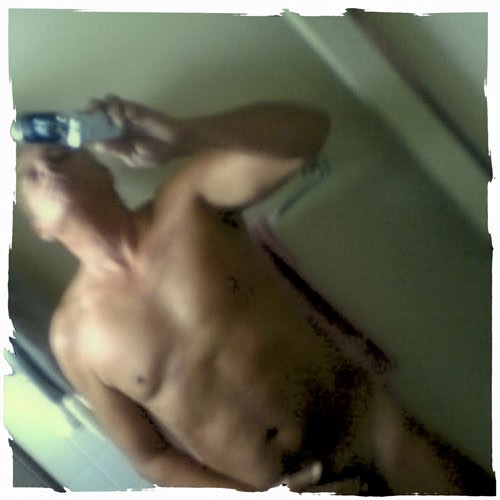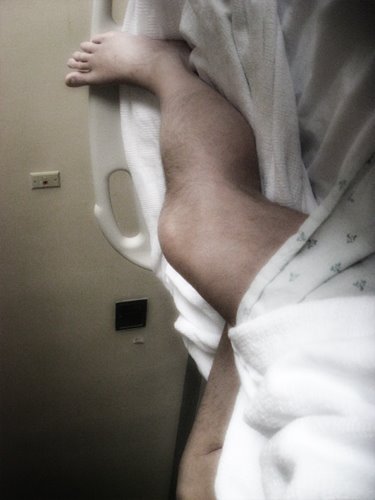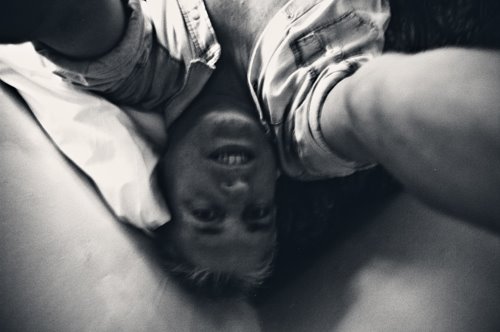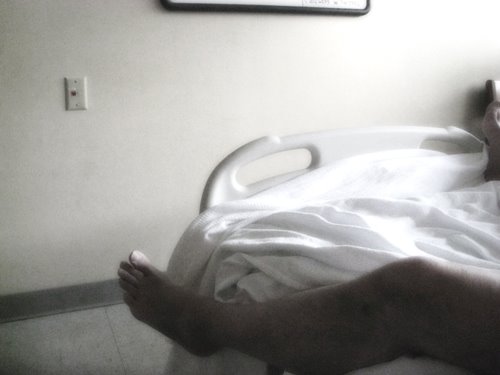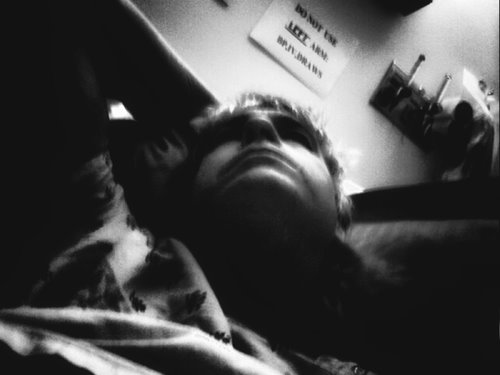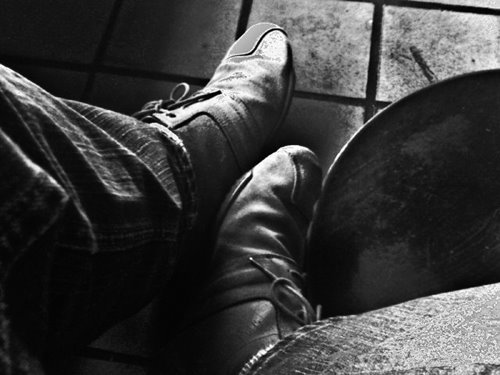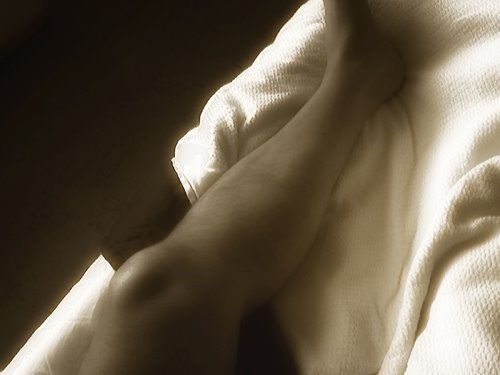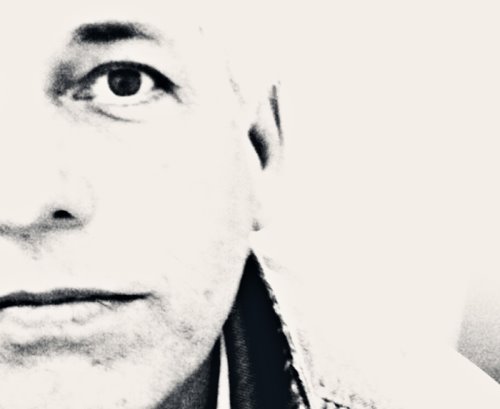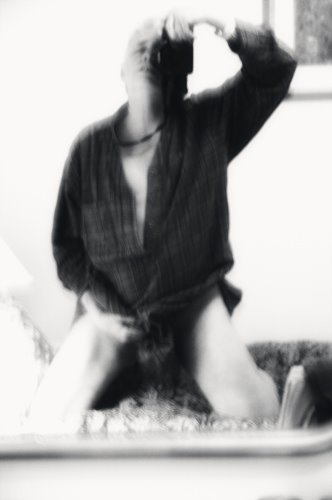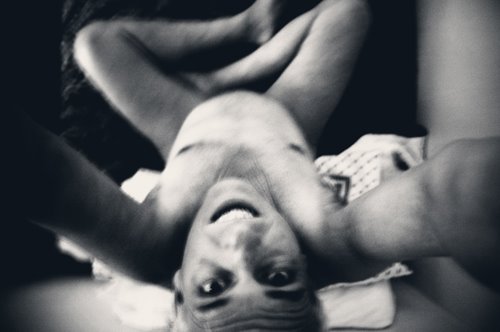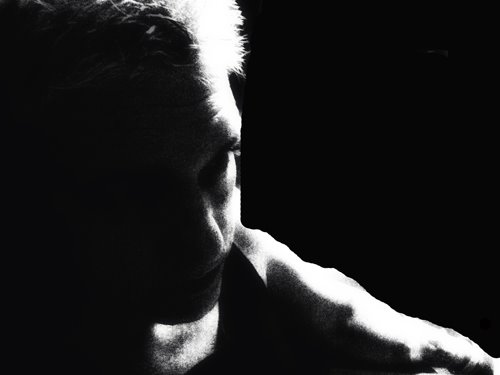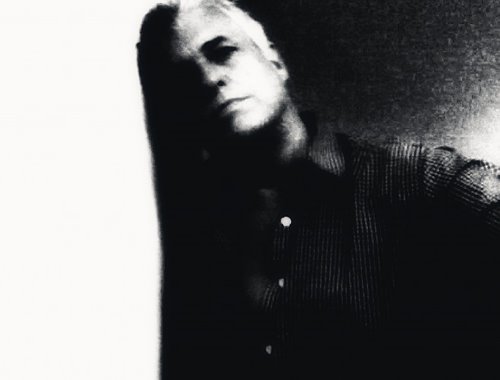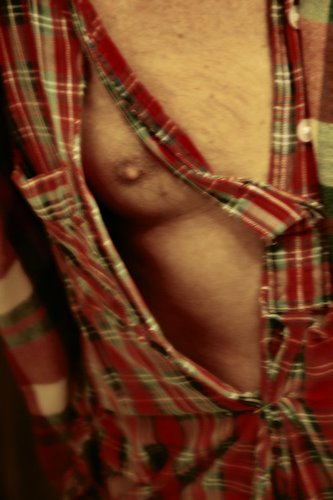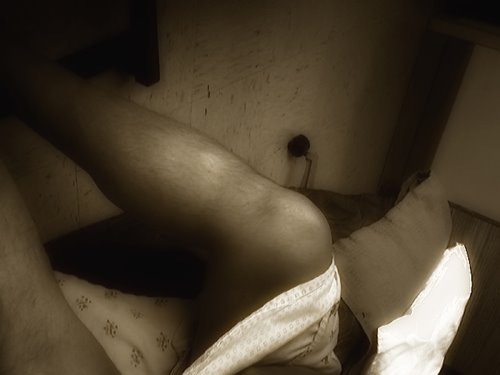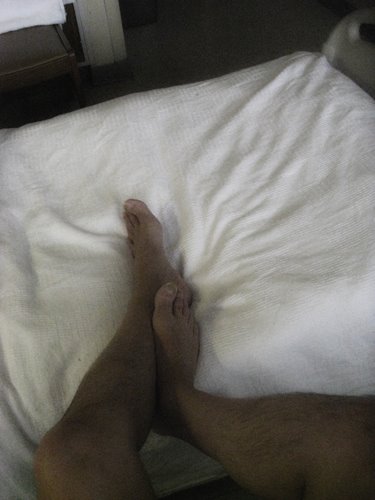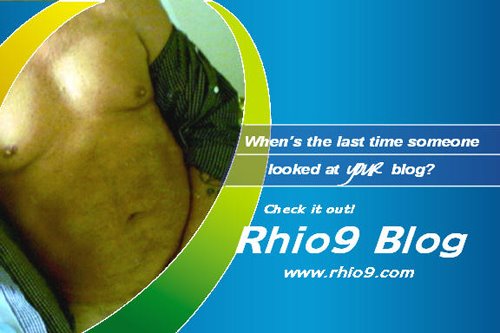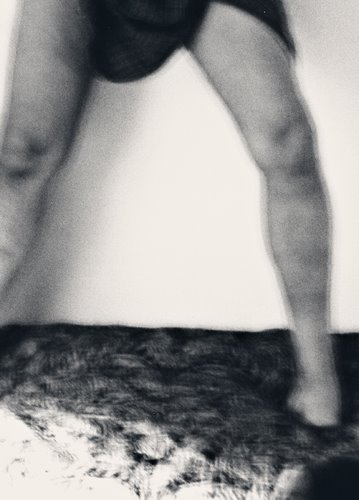Sometime in 2003 I discovered that I was really good at hiding behind things and getting good photos.... candid, hidden shots, secretly photographing people and things without them noticing or being aware of it; might have had something to do with me having the moon in the 12th house square the sun. I could walk past someone or I could simply stand still and wait for them to come to me and walk past me. They'd be looking the other way, trying not to look me in the eye, looking away from me, trying to be private, and I could snap a photo two or three feet away from them. They never knew what happened. My entire concept of "privacy" changed, or maybe it was informed by the camera phone: that privacy is really a myth of democracy, as a failed democratic principle. As democracy and capitalism become discredited with each passing day, so too the pillars of those philosophies become transparently fraudulent. There simply is no "privacy", none we can expect. "Individual privacy" has been replaced or substituted with "national security", which can mean just about anything.
I started going up to windows.... places like cafes, restaurants and outdoor places like that where there was a window or something. A lot of places posted their menus outside for people to read and consider before they went inside to take a table. I'd pretend to be reading the menu and I'd put the camera right up against the window directly observing people eating, or sitting in a booth, or on a bar stool and I'd be looking around, looking the other way, looking distracted and confused and I'd put the camera right there flush with the window pointed at them and I'd snap the photo. I found all sorts of places like that, not just cafes but any place that had windows and people inside.
Once I was walking thru a crowded street corner and I had my camera ready to snap and I saw these girls, a group of them all together walking, doing the town shopping. I was ready to start snapping photos secretly (I thought) and one of the girls turned to me and yelled, "Hey dude! What are you doin? Talking dirty pictures of girls? You're a dirty old man! Get a life!" That was pretty funny. I think I got one or two good shots and went on my way to someplace else.
After I took the photos I'd email them to myself. The phone I had and still have, but rarely use, is over five years old and it didn't have the capability to download directly to my computer. So I had to email them to myself, open it up and save them to some file or other. Every time I did that, or opened and closed a photo or moved it around on the computer, it seemed to be affected in some way, making it more gritty and grainy than it was originally. I started to like that effect. The phone has a maximum of 20 photos it can save before having to dump them or else lose them. I'd walk from one end of the city to another and get my twenty shots, go to a bar and order one drink after another and dump the photos to my email and then take some more. I'd walk back to the car or the subway and do the same thing. I could easily take 20, 40, 60 photos a day that way.
At first I was ticked off at the pixilated problem and about the sizes. I never even thought about resizing any of them, not until the software got really good. Now it's not a problem. People told me I wouldn't be able to enlarge a photo that was originally smaller in size, let's say a photo that was between 600 and 900 pixels. But I did it anyway. I enlarged photos up to 3000 pix and they turned out perfectly fine. Many are posted on the JPG photo website (see links below for examples). Low-tech finishing to my camera phone photos just made them more earthy, gritty and seedy. That was just what I was trying to do. The photos began to express the underbelly of the city I lived in and loved to walk in. Also I was very happy that I could make the photos be expressive with minimal technical training, ability, knowledge or whatever. I wanted to get away from the expected "right" and "proper" way of doing photography. I think I succeeded at that. With the collapsing phenomena of democracy and capitalistic institutions, "minimalism" is becoming a driving underscore for new perceptions of photography. The more spontaneous the shot, the simpler the camera, the easier the software, the deeper and more real the subjects (as reality): the better for everybody, maybe. (Bathroom, 44 Ellis)
The advantage of a camera phone is secrecy, shooting from the hip. Actually, all photos I took with the camera phone were really shooting from the hip. I very seldom actually looked at the viewfinder, for what it's worth. I used to walk down busy sidewalks, you know, really crowded places and just hold the phone up in the air, or hold it behind me to get upside down shots; or else I'd ride around driving my car with a sun roof and hold my hand outside holding it up thru the open window and snap shots as I drove along. I snapped dozen of photos that way, really good, candid, haunting photos of real people in real situations that I could probably never get with a high-tech camera. I could snap photos in bars, cafes, buses, subways, bathrooms, taxis. My favorite thing to do was to go up to a city bus stopped at a bus stop letting people on and off. I'd walk up to the bus, go to one of the windows near the back where people were sitting in their seats, hold the phone right up to the window and take a picture. Sometimes people would turn and see me; most of the time they didn't. Sometimes they'd get mad, or act invaded, but I didn't care. I was after something, trying to photo something special. (Bar, 44 Ellis)
I loved to take photos of people in bars, people walking on the street, shopping, eating and drinking. I took hundreds of photos like that all over the city, sometimes in the same place over and over again. Every time was different. There were always different people. Nothing is ever the same thing, whether the place was crowded or empty. Street shots were also a big favorite of mine; empty streets, wet streets, busy night time streets, crowded streets.
The disadvantage to the camera phone I used was lighting: there was none. There was no way to adjust anything for lighting. A dark room, a night time scene, a bar, café or whatever.....if it was night time and dark I was lucky to get a shot that I could work with, but I did it anyway; somehow I made it work for me. I couldn't control the lighting effects. Sunlight was always a good shot most of the time, but night time shots, indoors, outdoors with little light...it was always going to be an interesting problem. Modern software has done a lot to make it easier to "fix" lighting issues and I'm grateful for that, especially if it complements the minimal effect.
My favorite subjects to photograph with the camera phone probably had to be indoor shots, friend's (and their houses) flats, tables, café tables, bars, alcoholic drinks, musicians playing. I took a lot of shots of jazz musicians jamming in clubs, or in their homes. I like to take photos of instruments, books, counter tops, drug paraphernalia, bottles of liquor, nudes, and sexual situations, most of which I've lost completely. Most of the time I never posed a scene to shoot; I'd just do what ever was in front of me. Occasionally I'd set something up, but hardly ever.
I like to photograph cups, saucers, tables, utensils, chairs, beds and anything that moves and creates a blur, anything that is darkly noir that comes from the shadows, that lies hidden underneath the covers, anything that is forbidden. It takes something in me to go out and look for the forbidden, to look for it, to be able to see it, to know the forbidden when I see it and sense it, to be able to recognize the forbidden and the denied, the dangerous, the risky and the taboo and to be able to confront it photographically, intuitively and spiritually....that's the challenge for me as a photographer. The camera phone simply helped me identify the forbidden when I saw it.
I don't use the camera phone that much anymore. Not sure why exactly. There was a time and place for it where I was living before. My entire mood and temperament was different, erratic, fool-hardy, drug happy. There's energy to those photos that I love but I've moved on from that. I don't experience life in those terms anymore. I have a new and revised, reinvented and self-motivated life experience now that I'm embracing unconditionally. I've learned to experience freedom and completion to the things of the past. I might love them, but I'm not living them anymore. I'm complete with the past. I'm not the sum total of the past. I am living into a new future and photography is a form of communication that is informed by the past, but it is not a reflection of the past. I have a new life now in a new environment. I hope my photos are experienced as a bridge from one to the other.



